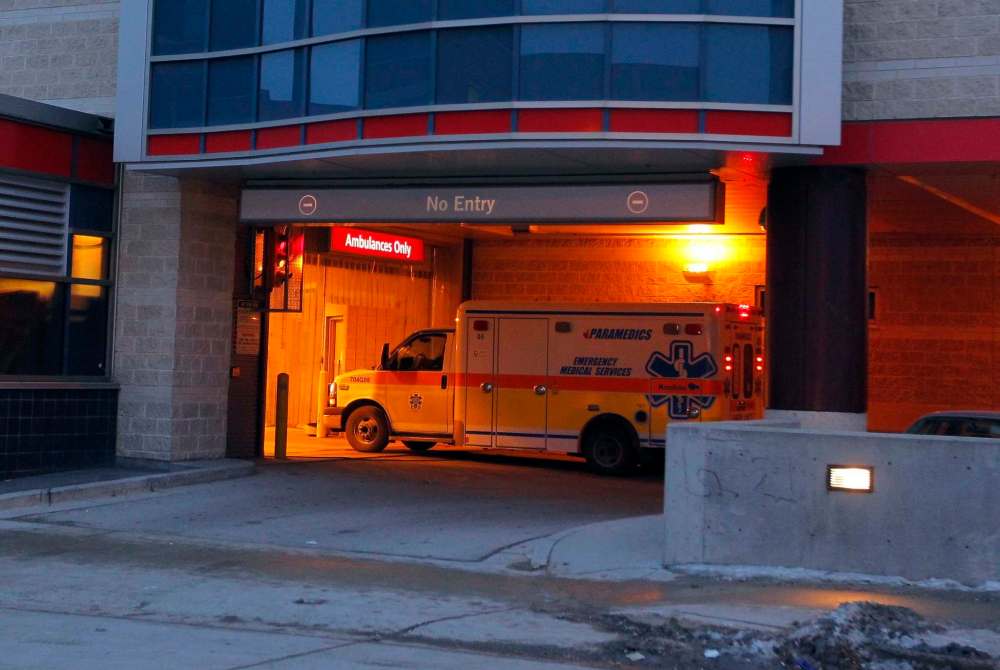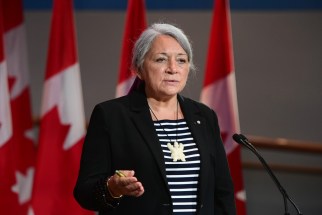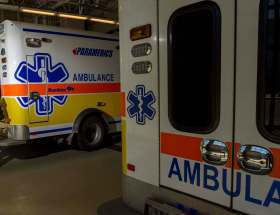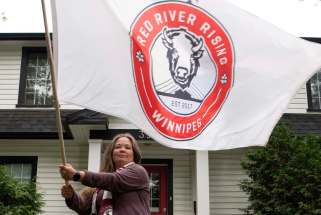WFPS chief reports six-hour waits for some ambulances, burned-out paramedics
Read this article for free:
or
Already have an account? Log in here »
To continue reading, please subscribe:
Monthly Digital Subscription
$0 for the first 4 weeks*
- Enjoy unlimited reading on winnipegfreepress.com
- Read the E-Edition, our digital replica newspaper
- Access News Break, our award-winning app
- Play interactive puzzles
*No charge for 4 weeks then price increases to the regular rate of $19.00 plus GST every four weeks. Offer available to new and qualified returning subscribers only. Cancel any time.
Monthly Digital Subscription
$4.75/week*
- Enjoy unlimited reading on winnipegfreepress.com
- Read the E-Edition, our digital replica newspaper
- Access News Break, our award-winning app
- Play interactive puzzles
*Billed as $19 plus GST every four weeks. Cancel any time.
To continue reading, please subscribe:
Add Free Press access to your Brandon Sun subscription for only an additional
$1 for the first 4 weeks*
*Your next subscription payment will increase by $1.00 and you will be charged $16.99 plus GST for four weeks. After four weeks, your payment will increase to $23.99 plus GST every four weeks.
Read unlimited articles for free today:
or
Already have an account? Log in here »
Hey there, time traveller!
This article was published 06/07/2021 (1617 days ago), so information in it may no longer be current.
Winnipeggers have waited as long as six hours for an ambulance staffed by burned-out paramedics during the COVID-19 pandemic, the service’s frustrated outgoing chief says.
Winnipeg Fire Paramedic Service Chief John Lane painted an alarming picture of the department’s operations in his final report to the city’s protection community services and parks committee this week.
“It really underscores the fact that we have had no net new ambulance resources in Winnipeg since 2011… even pre-pandemic, we were getting to the point where our ambulance utilization rates were well above anything that would be considered even busy by industry standards,” Lane told the Free Press Tuesday. “We were at the extreme end.”

And then COVID arrived, taking matters from bad to worse by stretching resources and further stressing staff dealing with desperately ill elderly patients in at personal-care homes when cases spiked late last year.
Paramedics have been logging heavy overtime since the pandemic began, leading to staffing concerns and burnout, said Lane, who is retiring at the end of the year.
“People are working an awful lot…. So it becomes increasingly more difficult to staff on overtime, because people are just tired,” he said.
Last October, the WFPS called on the province to provide 10 new ambulances and an additional 120 crew members to staff the units. Lane said at the time he was at “the begging stage.”
The city and the province are now into a fifth year without a contract to fund the service after the previous agreement expired in 2016. Winnipeg operates ambulances in the city on the province’s behalf. But the contract between the two levels of government expired in 2016. It was extended in 2017, and the city offered a draft proposal to the Progressive Conservative government in 2019.
Last year, the province paid the city $31.4 million to run ambulance services.
“This is the state of public health in this province, and there’s downstream costs to Winnipeg and Winnipeggers,” protection, community services and parks committee chair Coun. Sherri Rollins said.
“I’m very proud Winnipeg Fire Paramedic Service innovated in this really difficult time, but the system is really overburdened, taxed, stressed, and it’s really about time some adjustments are made on Broadway.”
In a statement Tuesday, Shared Health said response times to calls that involve urgent or life-threatening care continue to be answered within minutes.
“Shared Health is committed to ensuring ongoing access to emergency medical services for Winnipeg residents,” a spokesman said. “That is why we invested $44.68 million in the WFPS in 2020, which represented an incremental funding increase of nine per cent in only two years — well above the rate of inflation.”
Lane provided the committee with an update to the EPIC 9 pilot, a phone-triage program that uses paramedics to assess patients after they call 911. The goal is to keep some ambulances and paramedics free for the most urgent matters by directing less-serious cases to travel to hospital with family members, for example.

Rollins voiced support for the triage program and said the WFPS had “innovated to deal” with the grim situation it’s currently in.
“This would be one of the things other jurisdictions did in addition to hiring more paramedics, hiring more nurses, getting ready that should’ve been considered that wasn’t,” she said.
Rollins said the increased wait times reported by Lane “directly point to the need for increased ambulances.”
Lane said as he gets closer to retirement after seven years as chief, he is proud of the work done by the WFPS in its strategic planning for the future, but said the lack of a contract with the province remained “frustrating.”
“It takes a real toll on our staff,” he said.
malak.abas@freepress.mb.ca
Twitter: malakabas_

Our newsroom depends on a growing audience of readers to power our journalism. If you are not a paid reader, please consider becoming a subscriber.
Our newsroom depends on its audience of readers to power our journalism. Thank you for your support.
History
Updated on Tuesday, July 6, 2021 9:57 PM CDT: Updates headline, adds comments from Shared Health.







